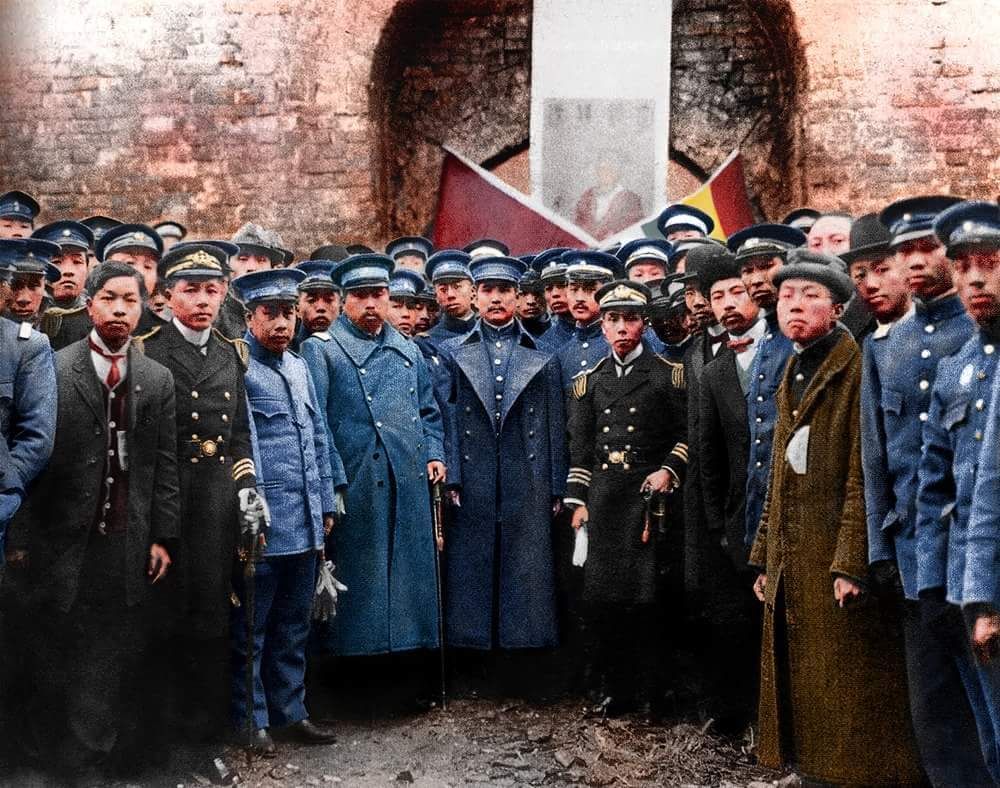
https://revivingroc.com
Yang Kuisong: Sun Yat-sen's "transfer of Manchu and Mongolia"

- Editor's note: An excerpt from an interview with Yang Kuisong by Nandu Weekly in 2009. Take this as a unified answer and popularize the correct view of history.
Is Sun Yat-sen a patriot or a traitor? The problem is caused by the various documents found in Japan that Sun Yat-sen did not hesitate to promise the Japanese authorities to sell "the rights and interests of Manchuria and Mongolia" in order to seek Japanese support for the Chinese revolution. Researchers who were sympathetic to Sun Yat-sen insisted that this was just a revolutionary strategy of Sun Yat-sen, which did not mean that Sun was not patriotic.
In my opinion, these two views actually have problems, and the root cause is that they were not able to penetrate into the historical conditions and historical environment at that time, and put themselves in the shoes of Sun Yat-sen's understanding level by means of empathy. see the question. Said that Sun Yat-sen was not patriotic, then what did he revolutionize? Read Sun Yat-sen's various revolutionary speeches in those years, almost all of them are filled with strong feelings of seeking interests for the country and the nation. The problem is that, unlike most of us today, the "country" that Sun Yat-sen wanted to build was not the "country" we see today.
The original intention of Sun Yat-sen's revolution was simply "to expel the Tartars and restore China". "Taru" refers to the Manchus, and "Zhonghua" refers to the country in the history of the Han people, whose scope is in the north, with the Great Wall as the boundary. In other words, Sun Yat-sen's most basic revolutionary goal at the time was to drive the Manchus back outside the customs and rebuild a Han Chinese state within the Great Wall. This means that the "China" that Sun Yat-sen loved back then was different from the "China" we see today. Is there anything wrong with this? If we can go deep into the specific history, can understand this, and know that people in history have a very different understanding of what China is and how the country should be built, and we have a very different concept of China today, we will not have an understanding of history. Characters and their various practices easily point fingers and make irresponsible remarks.
It is a pity that a considerable number of readers today, and even a considerable number of researchers, are always accustomed to breaking away from the specific historical environment, and using the vision and understanding of today's people to measure and demand people in history. This is as absurd as a parent insisting that a minor child act according to his own will. History is constantly evolving in the process of change. Some of Sun Yat-sen's understandings in those days may seem to us today just like the understandings of children who are still underage, and may have their immaturity, incomprehension, and inconsistency with today's views, but How can we see it as wrong? If you were replaced by Sun Yat-sen back then, would you be better than Sun Yat-sen when history had not yet happened? impossible. In fact, if we really read history carefully, we can find that in different historical stages, there were no historical figures in modern China like Sun Yat-sen, especially those revolutionary party organizations, who did not have the same understanding and understanding of Sun Yat-sen. practice? If we can't understand Sun Yat-sen, we can't understand other people, so we can't understand the modern history of China.
Like my work?
Don't forget to support or like, so I know you are with me..
Comment…